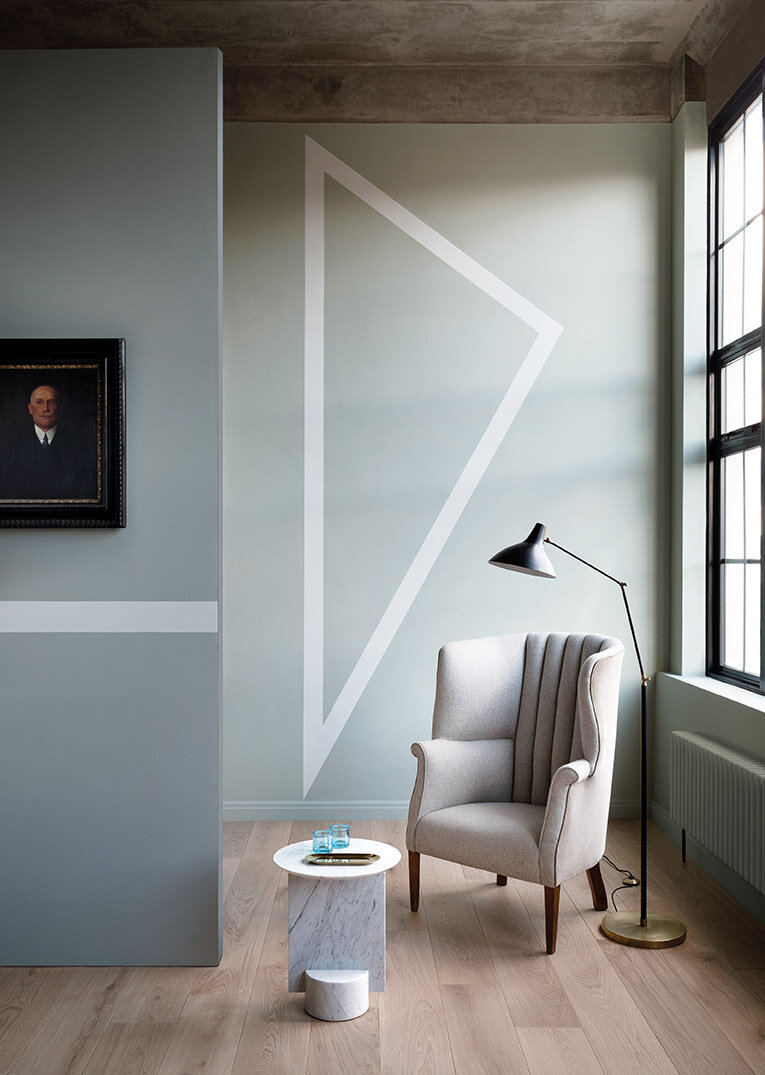An emotionally considered home
When designing a space it’s important to look attentively at all the various elements of a room. Practicality is important but consideration of the mood and the various senses that form this are equally significant in the design process; including intangible components such as scent. We are of course, all different. Individuality should direct how each sense is harnessed to form a nurturing, emotional connection; customising the space to create a unique experience. Rachel Usher explains;
“Design affects our senses, whether that be in the way that we interact with light and space, the texture of materials or the furnishings used; all of these elements directly affect the comfort & purpose of a space, relating to how we feel and influencing our emotional wellbeing
”
For most of us, escaping the stresses of daily life is the most important factor we look for in our home environments and understanding the different senses we’re surround by in our dwellings is a good place to start in creating a mindful space.
Our vision senses have the ability to change our behaviour, how we interact with light for instance can dramatically influence our sleeping behaviour; for a relaxing evening it’s best to avoid bright LED lights as the blue wavelengths keeps us alert, confusing our natural body clocks and would be better served in an office space where productivity is key. Lamps or candles that emit a warm glow are more ideal for winding down at night and the spaces we gravitate towards in the evening should take this into consideration.
Colour informs every aspect of our daily lives, our reactions are often emotional but also intuitive, without us even noticing. We’re often drawn to colours we like without considering their impact; where and how colour is used should again be mindfully considered.
“It is the interplay with our senses that creates an experience, for example the use of colour can evoke feelings of warmth and comfort if applied correctly; considering the size and purpose of the space”
Although intangible, our sense of smell has the ability to provoke deep emotions within our brain and likes or dislikes are often based purely on these emotional associations.
Harnessing our sense of smell is incredibly important, scents have an ability quite unlike anything else; to unlock memories and transport us perhaps to a time and place long forgotten.
“The scent of a space’s is as fundamental to the success of a design as the use of colour or texture”
Notably, our sense of touch is the most significant as our entire body is receptive to tactile qualities. We are directly affected by the use of different materials and respond to them, again, in an often personal way. We learn from our sense of touch and make judgments from these, developing deep associations which directly affect our thoughts and feelings.
So when designing a space, whether that be a home or social environment it’s undeniably important that emotional needs are fully considered. Our wants often over-power our needs but by acknowledging these personal feelings and reactions we’re able to ensure that both align; providing balance.
Designing an emotionally considered space is important, after all, you literally have to live with it. If you’re in the need of professional expertise please do get in touch; our interior design services are flexible, allowing us the freedom to cater to projects of various sizes. We work closely with all of our clients to realise imaginative spaces which truly reflect your vision and aspirations to enhance your at-home-experience.




